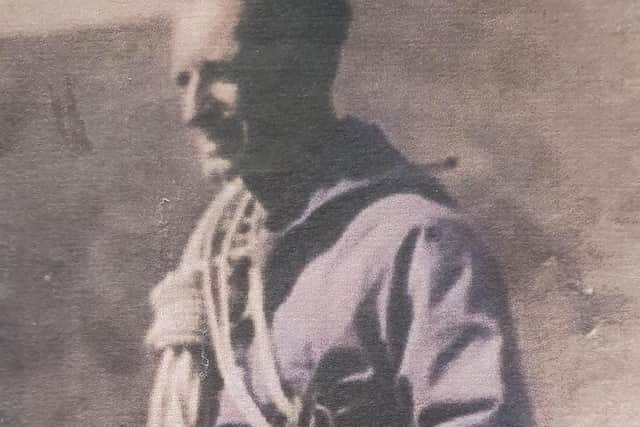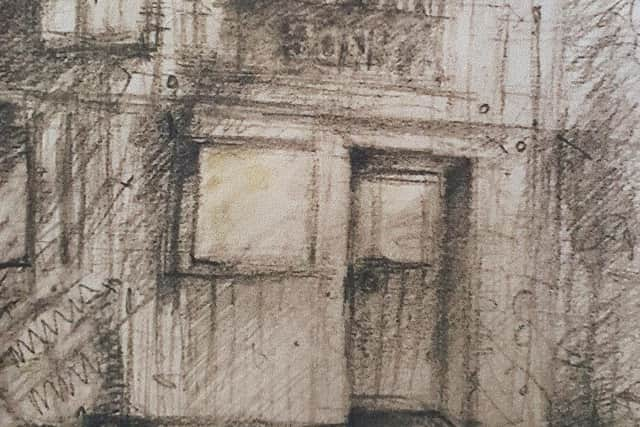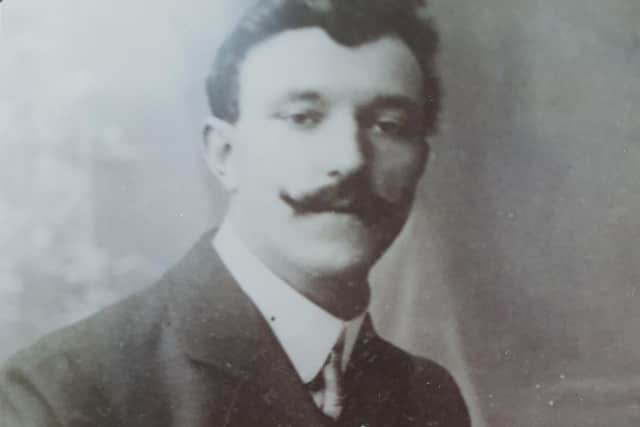Memories of a Blackpool joinery shop and the sweet smell of sawdust
and live on Freeview channel 276
At home we always referred to it as ‘the shop’, although my father never actually sold anything there.
It would have been more accurate to refer to it as ‘the workshop’, because that is where most of the off-site work for the family business, EJ Bevan and Son (Joiners and Shopfitters) was carried out.
Advertisement
Hide AdAdvertisement
Hide AdEvery month my brother John and I had to present ourselves there after junior school closed, to get our hair cut.


This exercise didn’t take place at the shop, which was in Caunce Street, Blackpool but at a local barber shop to which my father would take vere then left to make our own way back for a lift home in the family van.
We always referred to the barber as ‘old scissors’ and I remember him as a solemn, unsmiling man. Once my dad had paid and left he saw no reason to conceal his dislike of small boys. I recall him roughly yanking my wandering head back to the vertical position in the barbers’ chair on several occasions.
We always walked to Dad’s shop from school, which was only about ten minutes down the road. The shop itself was approached via a short alleyway (it would be too presumptuous to describe it as a driveway), wide enough to accommodate the van and various delivery vehicles that required access.
Advertisement
Hide AdAdvertisement
Hide AdThe place had a strangely Dickensian feel to it and if it wasn’t cobbled then it should have been.


The shop faced you as you walked up the alley. On first glance it had a shabby, uncared for look to it. On the left of the alley were the premises of the Blackpool Ignition Company, the woodwork painted blue with red lettering.
Further along from them and abutting the shop was a small timber yard, protected from would be plunderers by a large paling fence. This was used for seasoning wood and accommodating items not wanted in the shop. Principal amongst these was an enormous two-wheeled handcart of the type once used to move timber and various cumbersome items. Presumably this was used round the town in the days before dad purchased his Ford van in the early 1950’s. Joiners must have got a lot of exercise in those days.
I remember nothing of what buildings were on the right of the alley, but above the shop were the premises of John Pollit, tea blender. There was a double door above dad’s shop, which concealed the block and tackle used by Pollit’s to winch wooden crates of tea up and down, I remember seeing quite a lot of these around the alley.
Advertisement
Hide AdAdvertisement
Hide AdThey were lined with foil and had a distinctive, musty smell.


To the right of the shop front was a small, very primitive toilet, and next to that the shop occupied by Stan, a Polish emigrant who came to England during the war. He dealt in glass and mirrors.
There was a manually operated bell that operated on a pulley and weight system as you opened the door to the shop. That bell! - I can still hear the irregular, reassuring clanking noise over fifty years later.
Once you got inside the shop it was like entering another world. To the left of the door was an enormous bin containing sawdust, the natural waste product of the business. To the right was dad’s office. This was small and extremely utilitarian.
Advertisement
Hide AdAdvertisement
Hide AdHanging next to the door was an old, conical shaped fire extinguisher that looked as though it should have been in a museum. There was a coke fire burning in the grate during the winter months. A desk, strewn with invoices, wage slips and other papers, was to the left of the door.
On the desk was an old Bakelite telephone with a separate earpiece (Blackpool 33122!). The walls were covered with great big bunches of every imaginable type of key. My father once explained to me that these were needed to gain access to accidentally locked premises. He also told me how to place a sheet of newspaper under a door that was locked from the inside and then to push the key out of the lock from the outside, capture it on the paper and then slide it out. As well as the keys there was a big collection of barometers on the wall. I don’t know why they were there or who collected them. Perhaps it was a whim of my deceased grandfather. He had been in the joinery business since moving to Blackpool from Yorkshire before the first world war.
The main part of the shop was large and rectangular, the longest side running to the left of the front door. It housed a combination of workbenches and general machine areas, garishly lit by large bulbs hanging from the ceiling in white painted metal shades.
Beyond these pockets of light there were murky, shadowy bits, presumably not normally requiring expensive electricity as they were only in use part of the time. The workbenches seemed very large, as they no doubt had to be to construct the kind of rough carpentry that went hand in hand with shop fitting in those days. There were seven or eight of these, one for every workman and one each for my father and, if I remember rightly, my grandfather – dad was sentimental in those when it came to his late father who had died a couple of years previously.
Advertisement
Hide AdAdvertisement
Hide AdThe murky areas were a source of endless fascination for John and I, as there was a sort of forbidden feeling to them. I remember that along the wall facing the front door was the stock of timber for everyday use, neatly stacked according to size.
Other s contained strange, manually operated tools for punching and gouging holes in soft wood and other implements, the purposes of which were never explained to us.
The only power tool that I recall, although there may have been others, was a large circular bench saw that made a rather frightening, high-pitched whine, a bit like an air raid siren.
There was a fascinating array of hand tools, most of which were heavier and more substantial than their modern counterparts.
Advertisement
Hide AdAdvertisement
Hide AdBrass-backed tenon saws that had beech rather than plastic handles. These were always sharpened by hand, a time-consuming process. There were great chunky wooden bench planes, spokeshaves and bradawls - all these workshop tools bearing the stamped imprint of their rightful owner, EJ Bevan (my son has the original handmade metal stamp used to impress the name, made for my grandfather over 100 years ago).
As a result of continual use of these wonderful tools, the shop floor always seemed to be ankle deep in fresh sawdust and wood shavings with their sweet, intimate smell.
One of the most intriguing areas was the cellar, which John and I were permitted to explore on one occasion. I seem to remember that we used a torch for this purpose. The walls revealed peeling distemper but the only ‘treasure’ was a large stock of glue bottles of the type not now available, bearing the product name ‘Gloy’.
The shop was, of course, populated with dad’s workforce, always referred to as ‘the men’. In the late fifties he had five employees. The older ones were Norman, Henry and Bill, and he had a couple of apprentices, Peter and Michael. In later years, as dad’s interest in the business declined, this dwindled to just himself and Bill.
Advertisement
Hide AdAdvertisement
Hide AdThe men all wore the same sort of clothes - black bib and brace dungarees and flat caps (except for the apprentices who went bare-headed). They all seemed to have unlit cigarettes tucked behind their ears and hard, calloused hands. They also smelt of linseed oil putty and the Wills Woodbines or Capstan Full Strength that they smoked. All-in-all, unequivocally masculine 1950s workmen. M
y late grandfather had marked himself out from the men by wearing a long, black carpenter’s apron, and my father always wore a sports jacket with shirt and tie and never ever sported a flat cap.
These were my principal memories from those haircut trips - not just ‘old scissors’ and his barber’s chair but the kind of working environment that was by then rapidly vanishing. Suitably trimmed and shom we returned to the shop to await close of business. Then Dad locked up, we piled into the van and he drove us home. Until the following month.